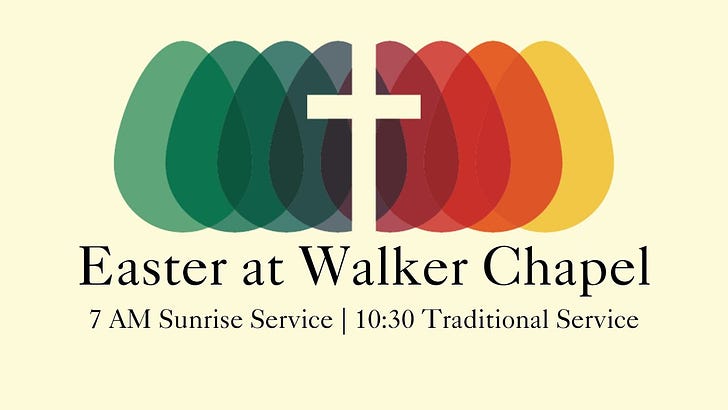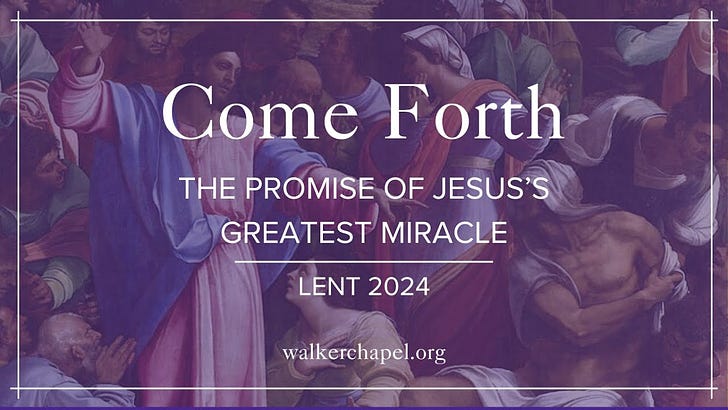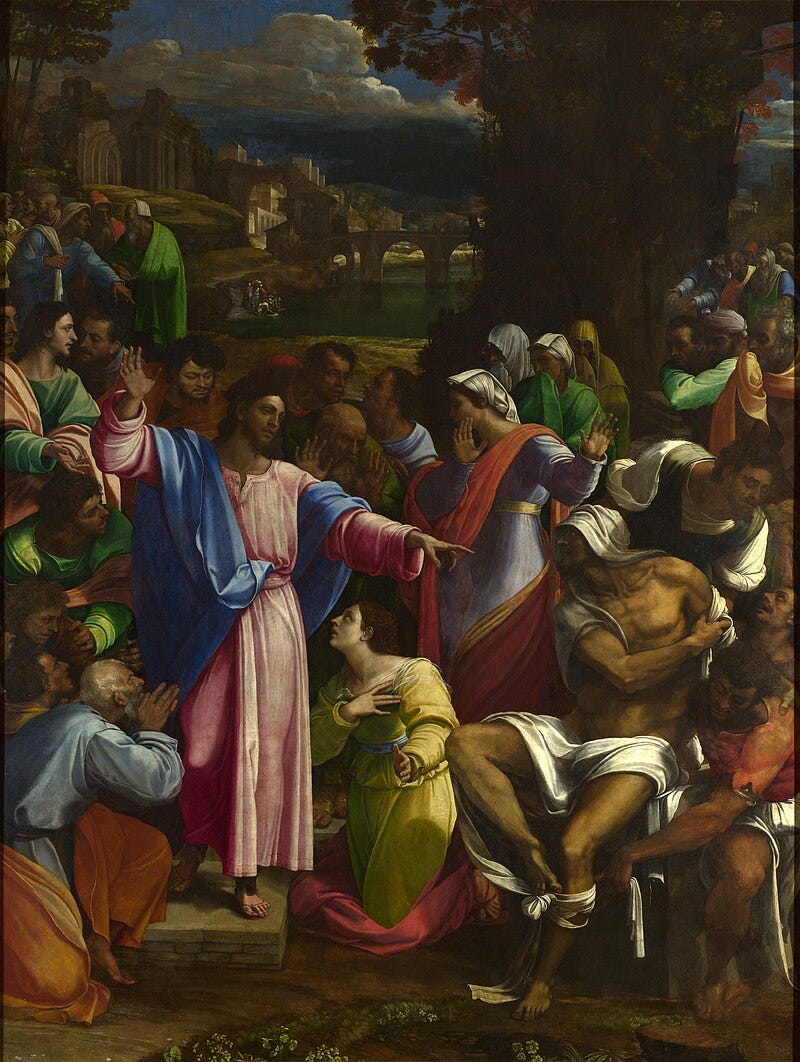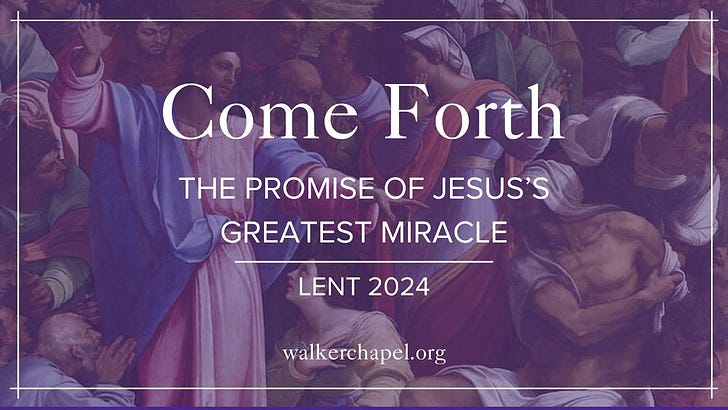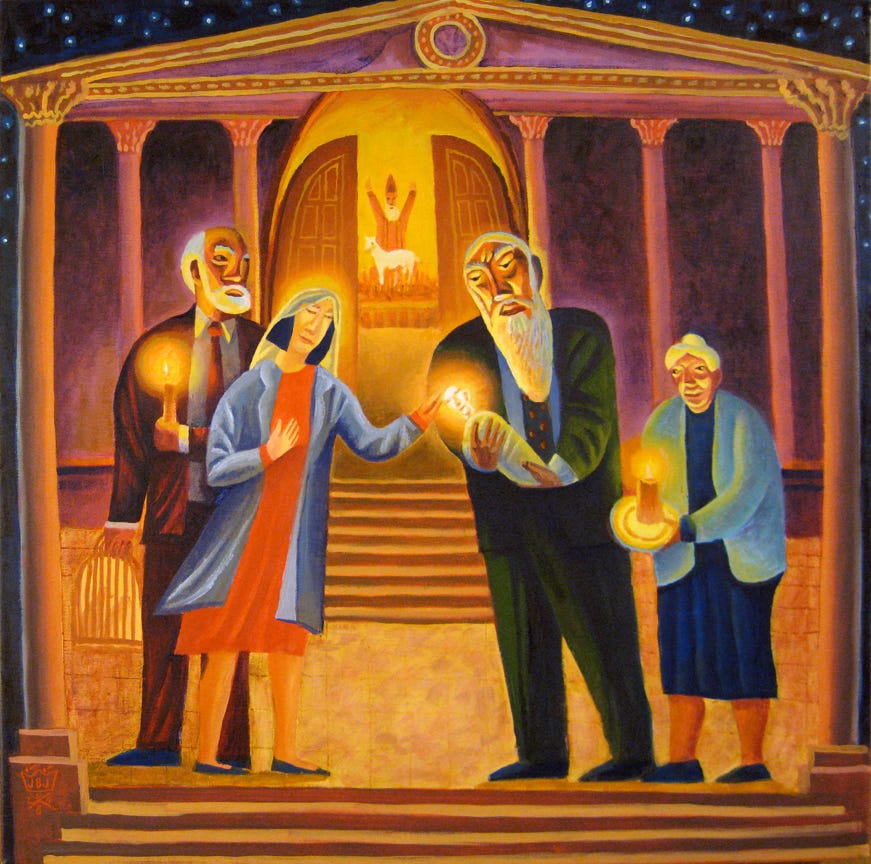Discover Brewing Theology With Teer
Brewing Theology With Teer

207 Episodes
Reverse
Brewing Theology is a reader-supported publication. To receive new posts and support my work, consider becoming a free or paid subscriber.Psalm 23When I saw that the Revised Common Lectionary assigned Psalm 23 this week, I thought, “Challenge accepted!” For many of us, Psalm 23 is reserved for funerals and memorial services. Every funeral and memorial service I have officiated has included Psalm 23. The other readings might vary, and the preacher may not even include the psalm in their sermon, but Psalm 23 stands as a bulwark in our times of grief. The psalmist assures us that our dearly departed family or friend “shall dwell in the house of the Lord”[i] while we dwell in grief.But does the psalm more familiar to mid-week and Saturday memorial and funeral services provide us with a glimpse into the good news of the resurrection? Does Psalm 23 have anything to say to us today when we do not find ourselves gathering to grieve but instead are gathered to proclaim Christ resurrected?“The Lord is my shepherd, I shall not want. The Lord makes me lie down in green pastures; The Lord leads me beside still waters, The Lord restores my soul.”[ii]Our physical bodies require more attention and resources than we realize. I was shocked to learn this week that in 2022, in The United States, we spent $4.5 trillion, or $13,493 per person, on healthcare.[iii] This money was spent on keeping us healthy and alive: flu shots, appendectomies, in-grown toenail removals, and heart bypasses. When it comes to cosmetic procedures, we spent over $26 billion on being nipped and tucked.[iv] Add on gym memberships, visits to the barbershop, cosmetic products, and other odds and ends; we spend a fortune on ourselves.The physical nature of your body is just one way you were created in God's image. God cares about the image you were made in more than the amount of money we spend maintaining or attempting to “perfect” what God deemed “good” long before we discovered Botox, facelifts, and hair dye. After hearing myself preach for nearly seven years, I can hear where it might be easy for some to say that I would argue that God has little interest in our physical wholeness. After all, I can sound like a broken record preaching the same old song of God’s grace. Yes, God loves you just as you are right now, but God loves you too much to leave you just as you are. The beauty of God’s grace is that God is unwilling to leave us as we are. God is interested in everything, whether our soul or physical body. Your whole self is what God loves, not this piece or that piece of you.John Wesley, the founder of Methodism, emphasized the importance of holistic well-being, advocating for a balanced approach to spiritual and physical health. He believed that the pursuit of holiness encompassed spiritual disciplines and stewardship of our physical bodies. It is easy to think of the Church as only concerned with the eternal care of our community, but the reality is that because we proclaim that the Kingdom of God is already here, our physical bodies matter as much as our souls. Wesley’s words echo through the ages, urging us to embrace a lifestyle that nurtures both body and soul.Nadia Bolz-Webber, a contemporary theologian, beautifully articulates the intrinsic worth of every human being in the eyes of the Divine. She reminds us, “What God claims to love, do not deem unworthy of that love. What God has called good, do not call anything other than good. What God has animated with God’s breath and endowed with a soul and God’s image, do not treat with anything less than dignity.”It is easy to think that we are the only ones worried about the physical nature of this life. We spend so much time and effort on ourselves that we can forget that the Lord indeed cares for us.Psalm 23 makes clear – through green pastures, still waters, and overflowing cups – that God is not only interested in making sure our physical bodies are raised when we claim the promised resurrection but that our bodies matter today.You’ll remember from Sunday school and our communion liturgy that God provided for Israel when they wandered in the desert, wondering if the Lord had abandoned them. When the bread of heaven fell to the ground, the Israelites asked Moses, “‘What is it?’ For they did not know what it was. Moses said to them, ‘It is the bread that the Lord has given you to eat.’”[v] the Lord did not abandon the physical needs of Israel.The signs and miracles performed by Jesus addressed the spiritual needs of the people and, at the same time, addressed physical ailments that had been neglected or deemed not treatable.The Gospel of Mark tells us, “And a woman was there who had been subject to bleeding for twelve years. She had suffered a great deal under the care of many doctors and had spent all she had, yet instead of getting better, she grew worse. When she heard about Jesus, she came up behind him in the crowd and touched his cloak, because she thought, ‘If I just touch his clothes, I will be healed.’ Immediately her bleeding stopped and she felt in her body that she was freed from her suffering.”[vi]Five chapters later, Jesus heals a man named Bartimaeus, who was blind. Bartimaeus…was sitting by the roadside. When he heard that it was Jesus of Nazareth, he began to shout out and say, “Jesus, Son of David, have mercy on me!” Many sternly ordered him to be quiet, but he cried out even more loudly, “Son of David, have mercy on me!”…Jesus said to him, “What do you want me to do for you?” The blind man said to him…“let me see again.” Jesus said to him, “Go; your faith has made you well.”[vii]I am not naive. I know that living where we live, with the healthcare plan you all gracious provide for my family and me, that talking about how God cares for our physical bodies can come across as tone-deaf when we know that to be considered “rich” by the stand of the world where many people live on less than $1,000 per day. Individually, we spend more on haircuts, lattes, and dinners out than many in the world would ever dream of being able to spend on their own healthcare for themselves or their children. This is where the “so what” of Psalm 23 and God caring for our physical bodies as much as God cares for our spiritual bodies comes into play.Today is Good Shepherd Sunday. The Gospel of John depicts Jesus as the Good Shepherd. Jesus said, “I am the good shepherd. The good shepherd lays down his life for the sheep. The hired hand, who is not the shepherd and does not own the sheep, sees the wolf coming and leaves the sheep and runs away—and the wolf snatches them and scatters them. The hired hand runs away because a hired hand does not care for the sheep. I am the good shepherd. I know my own and my own know me, just as the Father knows me, and I know the Father. And I lay down my life for the sheep. I have other sheep that do not belong to this fold. I must bring them also, and they will listen to my voice. So there will be one flock, one shepherd.”[viii]The disciples may not have known what Jesus meant until the moment when they were navigating life in the light of the resurrection. After the resurrection, Jesus told Peter, “Feed my sheep.”[ix]Feed Jesus’s sheep not because you need a notch on your spiritual belt or to earn favor with God but because, Peter, you love the Lord.Jesus invited Peter to join him in the work Jesus had already been doing – feeding, caring for, and nurturing the physical bodies of God’s people as much as they were proclaiming the grace of the Lord. This is the work the Church has been invited to participate in today, acknowledging that the Kingdom of God is at hand.The Kingdom where death does not hold the last word.The Kin-dom[x] is where we are connected so much that we cannot ignore the physical needs of those we invited to dinner any more than we can ignore the needs of someone on the other side of the world.This invitation to participate in the ministry of the Good Shepherd is an invitation to grace, for in caring for one another, we encounter our risen Lord when we share a meal, provide for one another, and remember that Christ has promised to sustain the body through bread and wine.[i] Psalm 23:6[ii] Psalm 23:1-3[iii] https://www.pgpf.org/blog/2024/01/why-are-americans-paying-more-for-healthcare[iv] https://www.plasticsurgery.org/news/press-releases/american-society-of-plastic-surgeons-breaks-down-2022-plastic-surgery-trends-among-different-demographics#:~:text=The%20average%20surgeon's%20fees%20for,surgical%20procedures%20in%20the%20U.S.[v] Exodus 16:15[vi] Mark 5:25-29 NIV[vii] Mark 15:46-52[viii] John 10:11-1[ix] John 21:17[x] The term "kin-dom" is often used as an alternative to "kingdom" in Christian theology and discourse, particularly within feminist and liberation theology circles. It emphasizes a relational, inclusive understanding of God's reign or realm, highlighting the interconnectedness and equality among all people as members of God's family.The concept of "kin-dom" seeks to move away from hierarchical and patriarchal connotations associated with the term "kingdom." Instead, it emphasizes the idea of a community bound together by familial ties, where each individual is valued and included regardless of social status, gender, ethnicity, or any other human-made distinction.In essence, the "kin-dom" of God reflects the vision of justice, equality, and love that Jesus preached and embodied during his ministry on earth. It invites believers to participate in building a world characterized by mutual care, compassion, and solidarity, guided by the principles of love and justice. Get full access to Brewing Theology at teerhardy.substack.com/subscribe
April 14, 2024Romans 12:1-10 Look, I get it; change is difficult. Renewal is even harder. But I am thankful that God has not left me with the faith or theology I had when I was younger. I give thanks every day that God is renewing my faith. God makes me see people in my midst, truly see them in ways that my prejudices would otherwise prevent. Because Christ’s Grace and faith are reckoned to me, my understanding of others is transformed. This is a transformation of the church as a body. Through the renewing of our minds, God is inviting us to a spiritual transformation. Spirituality is not a some product that can be marketed or consumed. Not a yoga retreat and not by the church. Not even ours. Instead, spirituality is a new life, a transformed life. It is a human response to seeing “the glory of the Lord as though reflected in a mirror.”Practices like prayer, worship, the study of the scriptures, and other spiritual disciplines are all ways God nurtures us as an act of spiritual transformation. Being conformed and transformed by God, is part the spirit of our Methodist DNA. John Wesley was engaged in spiritual renewal within the Church of England. Wesley upset many in the church, but he always viewed his work as being part of the established church, being part of Christ’s body, not apart from it. To be “metamorphosized into God’s image,” as Paul writes, is not something we do. There are no intellectual accomplishments by which you can make this happen. The transformation we experience is something God is doing to us. It is the byproduct of being encountered by the living God. How good is the news that you are transformed, redeemed, and saved by the Risen Christ? Why would you want your mind to be conformed to this world when you could experience Christ’s transforming grace? Get full access to Brewing Theology at teerhardy.substack.com/subscribe
April 7, 2024Genesis 1:26-31Psalm 139:13-16Easter 2The resurrection of Jesus Christ has implications for our whole selves – our bodies, minds, and souls.Who we are - every part of our being - is wrapped up in being created in the image of God and is tied up in Christ's life, death, and resurrection.From the beginning of humanity, we have been declared “good” by God. Do we always act “good?” Certainly not, but God called what God created, you, “good,” so you are good regardless of what you or others may say about you.You are “good” regardless of your actual or perceived flaws.You are “good” regardless of what others may say about you.You are “good” regardless of what you say about yourself.In a world that often demands that we filter ourselves through the lens of what popular culture demands, God says you are good to go. This is because we know that God loves you just as you are and that God loves you too much to leave you just as you are. When I say, “God loves you too much, leave you just as you are,” I am saying that God is making you more and more like Christ.Is God making us into the Saviors of the world? No. We already have one of those and live our life, died our death, and in his resurrection, we find hope for not just eternity with God but for the fullness of physical life.The promise of bodily resurrection is the continuation, a divine “Amen!” from the One who created us and declared us to be “good.” Get full access to Brewing Theology at teerhardy.substack.com/subscribe
March 31, 2024 John 20:1-18 Whatever the reason you came here this morning, our risen Lord is calling you by name, calling you to you in the midst of your grief or doubt. Calling you in the middle of joyous laughter and fun with onlookers says your behavior is inappropriate for the location. Calling you, just as he called the disciples away from their nets, calling you to a new life of following him, a life that promises new life. The grace of God, the love of God, is all around, especially on days like today. We all arrived here this morning in our Easter, best looking for one thing or another, and like Mary, we find that our risen Lord has plans for us that do not match what we had planned for ourselves. And that’s the good news of this day, is it not? No matter how we found ourselves here or for what reason, Christ still calls out to us by name. Calling us by name, like Mary, Jesus is inviting us to new life is only possible through God‘s grace. “Whom are you looking for?” Alleluia! Christ is Risen! He is risen indeed! Alleluia! Get full access to Brewing Theology at teerhardy.substack.com/subscribe
March 24, 2024John 12:12-29In our procession of fools, we miss that there is so much more to this story.In each stop between the Mount of Olives (Palm Sunday) and The Skull (the cross), Jesus is gathering all of humanity into him, the very best and the very worst we have to offer. No prayer or ritual must first be spoken or performed on our part. And that is grace.If Jesus calling Lazarus from his tomb last Sunday was the prelude to Holy Week, then Palm Sunday is Act One of a larger story. A story that we all have been baptized into, Soraya included. Fleming said it best, “the testimony of the four evangelists (gospel writers Matthew, Mark, Luke, and John), the testimony of the Christian church, is that in this event, in this godforsaken death, the cosmic scale has been conclusively tipped in the opposite direction, so that sin and evil and death are not the last word and never will be again.”There is so much more to this story. Get full access to Brewing Theology at teerhardy.substack.com/subscribe
March 17, 2024John 11:1-44Jesus is calling each of us to “come out!” Now, I know what you are thinking. If God speaks to you or someone tells you, “God spoke to me,” the temptation to take a step back or to think the person chased their drinks from happy hour with a shot of NightQuil. But (and you know how I feel like big buts), the truth is that God is speaking to us today – in subtle and not so subtle ways – just as God has been speaking to the saints before us.To step out of the shadow of death – the shadow of things that attempt to create a separation between God and us – and into new life through the grace of God. We are invited, through this story, to, like those who first witnessed what they could have believed was a dead man walking, to faith in Christ and faith to leave behind the things that cause us to believe that death is the only thing that waits ahead of us. Get full access to Brewing Theology at teerhardy.substack.com/subscribe
February 24, 2024John 11:7-15Lent 2When we lump a group of people in a category like “the Jews,” “the Muslims,” “the Russians,” “the Ukrainians,” “the Americans,” “the Mexicans,” “the Palestinians,” or the “Israelis,” we risk an attempt at reducing the imago dei[ix] – the made in the image of God-ness – of those people into a caricature that fits our prejudices and ignores the rich diversity of the group of people. If we learned anything from the Holocaust, if we are learning anything from what is happening in Gaza today, it is that once a group of peoples’ identity has been reduced to the “other,” the group responsible for the ills of another group, the removal of those people is much easier.Murder and genocide are much easier to sell when the humanity of “the other” has been removed. In recent years Christians in the United States have been coming to grips with the church’s role in the dehumanization of Indigenous populations of North America along with those forcibly moved to North America throughout the Trans-Atlantic slave trade. Which led to what James Cone describes as “the lynching era” when “white Christians lynched nearly five thousand black men and women in a manner with obvious echoes of the Roman crucifixion of Jesus.”Why do you think misconceptions about Jewish people exist within the church? Take this question a step further and consider why misconceptions about Muslims, Jews, other religions, and even “other” Christians exist within the church. Share that with the people worshiping around you this morning.In his letter to the church in Galatia, Saint Paul put an end to the us vs. them “othering” that was occurring in the church. He wrote, “There is no longer Jew or Greek, there is no longer slave or free, there is no longer male and female; for all of you are one in Christ Jesus.”The labels and prejudices we use to “other” one another were torn down on the cross. Christ, in taking the sins of the world upon himself, put an end to us versus them. This is where we find the Good News of this portion of the story of Lazarus: even while John uses problematic language, the grace of God remains. Lazarus, a Jew, was raised. Jesus, a Jew, will be raised. And the promise holds true for you and those we deem anything other than God’s beloved. Get full access to Brewing Theology at teerhardy.substack.com/subscribe
Lent 1John 1:1-6The following sermon is the first in a five-part congregational study of the raising of Lazarus. In addition to the Gospel of John, we will be using James Martin’s book Come Forth: The Promise of Jesus’s Greatest Miracle as a guide for our study.Set aside the good and bad of what the world has to say about you and know that You are God’s beloved.Consider for a moment what it means to be God’s beloved. Looking back on your life, what enables you to believe this?James Martin writes that we know Lazarus’s name because the early church knew it.[ix] Before the Gospel of John was written, Lazarus was raised, and thus, Lazarus’s name was known. And here’s the thing: he did nothing to earn fame. Lazarus, “God has helped,”[x] “he whom you love,”[xi] is known and celebrated as the recipient of Jesus’s greatest miracle, and his only act was to walk when called upon. “Lazarus come out.”The world may not know who you are. You may feel invisible throughout the day, or the world's attention is always on you. None of that matters to God when it comes to your belovedness. Your belovedness, you being one whom the Lord Jesus loves, like Lazarus, has nothing to do with your accolades and everything to do with the One calls us to “come out,” to come and see the goodness of God’s grace. Get full access to Brewing Theology at teerhardy.substack.com/subscribe
Ash Wednesday 2024Matthew 6Isaiah 56:1-12The fancy theological term for Ash Wednesday is “repent.” You will be impressed to know that the Greek word metanoia means to turn away or reorient. Today is when we, as Christ’s body, repent, with the help of spiritual disciplines, God’s grace, and the power of the Holy Spirit to turn away from our sin and back toward God. And it is in repenting that we find the Good News of this day.It is not that we repent on our own. If it were entirely up to us, we would not need to repent because we would be unable to see that we are indeed caught in the snares of sin. We would be unable to see how we have sinned against God and one another. We would not be caught off guard when Ash Wednesday and Lent appear on the calendar.The grace of God repents us. God’s prevenient grace – grace that goes before us – helps us to begin to see where and how our sin is at odds with God’s cosmic plans for creation. God’s grace is at work in your life even when days like Ash Wednesday sneak up on you. The season of Lent – through the adoption of a Lenten practice and heeding the words of Christ – is one of the ways God is repenting us, pulling us from the snares of sin, and sanctifying us, making us more and more like Christ. Get full access to Brewing Theology at teerhardy.substack.com/subscribe
February 11, 2024Mark 9:2-9Peter had a glimpse into the mystery of our faith: that God became fully human so that humanity might become righteous. The Good News, the hope contained in the Transfiguration of Jesus, is not the message to come down the mountain and serve the poor – a message many would affirm without ever knowing Jesus. The Good News is that God became like us, like you and me.The light that beamed from the transfigured Christ is the same light that said, “Let there be…” The same Light that the creation waits for with sighs too deep for words. The same Light that will one day make all of creation a blaze like a bush with God’s glory, but not consumed.The light that beamed was a glimpse into the eternity that is the fullness of the Kingdom of God.The disciples received a kaleidoscopic preview of what we proclaim at the end of the Nicene Creed: “We look for the resurrection of the dead, and the life of the world to come.”[viii]There is no way we can jump from the proclamations of Jesus as Lord – Peter declaring Jesus to be the “Messiah of God” or the people of Jerusalem shooting sweet hosannas as Jesus entered the city on Palm Sunday to the excitement of the resurrection (Easter) without going through the Holy Week. It is not that the wrath of God had to be paid by Jesus to reveal God’s love for humanity. Instead, through Jesus taking on the violence and despair humanity threw at him, the goodness and mercy of God’s love would reveal the lengths to which God would go to save us.Glimpses into the eternity of God come and go for all of us as we continue to grow in our faith and have our own encounters with the resurrected Messiah. And each glimpse is like a kaleidoscope, revealing something new to us about the fullness of who Jesus is. Get full access to Brewing Theology at teerhardy.substack.com/subscribe
January 21, 2024 Mark 1:21-28 The story of Jesus Christ is a story of interruptions. The announcement of his birth by the angel Gabriels interrupts Mary's life and her plans to be married to Joseph. The silence of Christmas night was interrupted when angels announced the birth of the Messiah to shepherds who watched their flocks by night. John the baptizer was interrupted when Jesus stepped into the Jordan River to be baptized. The lives of the first twelve disciples were interrupted when Jesus called them away from their nets and families. Jesus's sermon is interrupted by a man with an evil spirit. We can jump ahead in the gospels and see that the victory Sin and Death thought they had grasped was interrupted on Easter morning when the crucified Messiah left his burial clothes behind, and walked out of his tomb. God’s interruptions reveal to us not only God’s grace but also the authority God holds over our lives. So, we gather, and we worship praying that God will interrupt the status quo. To become a follower of Jesus means that we can welcome these interruptions, viewing them not as inconveniences but rather as moments of grace breaking into our lives. Get full access to Brewing Theology at teerhardy.substack.com/subscribe
January 14. 2024John 1:43-51The calling of the disciples, the calling of anyone by God, to “Come and see,” is about more than saying “yes” so that the Lord can send us out. Philip, Nathaniel, Andrew, and Peter were not called and immediately sent. Their sending will happen three years after their calling. After three years of seeing what Jesus was doing, they would be sent to make more disciples, to baptize them, and to teach them to follow what Jesus had taught the first 12.Before Jesus called his followers “disciples,” they were called “beloved” because of who created them. We are only who God says we are: no more and no less. So, no matter what number we might be in the Enneagram, no matter what four-letter Myers Briggs designation we receive, we are who God says we are: beloved. You are beloved before you are anything else. You are beloved before you are sent out to do anything in the name of the Lord who saw you sitting under a fig tree, on a barstool when you were at your wit's end, or in the car because you could not face the people inside the house with the news you had to deliver.For Samuel, the first 12 disciples, and us, the Good News is that Jesus’s preexisting messiahship (where all of the best qualities are of God and the result of who God is) is not dependent on us saying “yes” to God. Instead, it is a sign of God saying “yes” to us, “yes” to creation, and “yes” to seeing to it that the kingdom of God is fully realized. Get full access to Brewing Theology at teerhardy.substack.com/subscribe
January 7, 2024Baptism of the LordMark 1:4-11Jesus enters the water of the Jordan River, and as his head breaks through the surface of the water, the heavens open up, and a voice calls out, “You are my Son, the Beloved; with you, I am well pleased,” and the Holy Spirit descends like a dove. Emmanuel, God with us, entered the same water where many had left their sins behind so they could turn back toward God. The Son of God entered the murky waters of creation, taking upon himself the sins of the world so that what we have mucked up is made clean. The unclean becoming clean. The unrighteous made righteous. The mucked up unmucked.Jesus did not need to repent.Jesus did not need to be baptized.But Jesus, in his first act of ministry, getting into the waters of John’s baptism, is just one example of how God is not reigning from a golden chair high above creation. Through what happened in Bethlehem, through the Wise Men traveling from outside the covenant God made with Israel, and through Jesus getting down and dirty in the Jordan River, God is showing us time and time again how God is not willing to allow us to be in the muddiness of life on our own.When we are baptized, because Jesus entered John’s baptism, we are buried with Christ, exiting the waters clothed in new life in Christ. Baptism is not limited to our yes or parents’ yes on behalf of their child to Jesus. Our baptism is God’s yes to us. Your baptism is God’s yes to you.With Jesus’s baptism located on the coattails of Christmas on the church calendar, it is easy to take for granted what happened in the murky waters of the Jordan River. What Jesus did in the Jordan River was an invitation to all people.When Jesus invites us to the waters of our baptism, it is an invitation to all people.The invitation of baptism is to be made new in the light of God’s grace.All are invited to the waters of baptism because, as we will see in the weeks ahead, Jesus is unwilling to allow anything to stand between you and the love of God. Get full access to Brewing Theology at teerhardy.substack.com/subscribe
“The Season of the Great Resumption"Luke 2:22-38December 31, 2023 - First Sunday After ChristmasSimeon and Anna were both filled with expectations. For both, their expectations rested not in the cycle of the Temple but rather in the promise made by God to Israel – to raise up the messiah through the line of David. So, Simeon and Anna waited. Anna waited in the Temple for the coming of the Lord. Imagine spending day and night here in the Chapel, waiting for the Lord to be presented, not knowing what to be on the lookout for. Simeon relied on the Holy Spirit to tell him when he might go to the Temple to find what. A mighty warrior? A well-skilled politician? A baby enters the Temple for the first time so the child’s parents can offer “a sacrifice according to what is stated in the law of the Lord.”We read that the child’s parents offered “a pair of turtledoves or two young pigeons,” signaling to us that the family presenting Jesus was not of extravagant means. Get full access to Brewing Theology at teerhardy.substack.com/subscribe
Christmas Eve Luke 2:1-14 We want joy in our lives. When the world jerks us around, we look for ways to push back and fight back. That’s our story. But (and it’s a big but so you know it does not lie) the story that drew you in tonight is not a story of our initiative against the world's problems. We might find temporary relief in our story, but it rarely leads to the joy we feel tonight, the joy that was laid in a manger. Deep, abiding joy is the result of what God does. Mary sang. The shepherds danced their way back to the fields. We are joyful. We can sing this evening because God has moved and is on the move. God is active in the world, confronting the ways of the world that are not the ways of God. Get full access to Brewing Theology at teerhardy.substack.com/subscribe
December 24, 2023 - Advent 4Luke 1:26-38At a particular time and place, in a manner and through people that supersedes what we think to be the normal course of historical human events, God acted, begetting a Son who comes as the fulfillment of God’s promise for the salvation of humanity.Was the angel Gabriel lost? At each intersection between Heaven and Nazareth did Gabriel ask, “Where do I want to go?”Left? Right? Straight?“Can anything good come out of Nazareth?”From the world’s point of view? Perhaps no. But for God? You bet your donkey it can! Get full access to Brewing Theology at teerhardy.substack.com/subscribe
December 10, 2023 | Mark 1:1-8Like the Professor in All the Light We Cannot See, John the Baptist is broadcasting gospel good news in the middle of the night.We all want hope which is why we left our Christmas decorations up well into the new year during Christmas of 2020 when the darkness of death and despair was a kind of cloud around us.We all want hope which is why we put our Christmas decorations up earlier and earlier, year after year.We all want hope which is why we will gather on Christmas Eve, light our candles, hold them up, and sing “Glories stream from heaven afar… With the dawn of redeeming grace.”For as much as we love the lives we have curated for ourselves, our Advent and Christmas declarations shout, as voices calling out from the wilderness, that despite our best efforts to stop God, God is putting an end to the evil age. We are living in the beginning of the end right now – a time between two advents.John the Baptist is an often-forgotten character from our gospels. We read about John’s ministry a few times, and then he is forgotten. By the time the bright lights of Christmas overtake our living rooms, John will be a character we reluctantly remember. But (and it’s a big but so you know it does not lie), maybe that is good. John disappears, proclaiming that the Light of the world has come so that the spotlight John held now falls on Christ.As we wait and anticipate the return of Christ, may the attention we draw to ourselves begin to fade and give way to the Light that shines into the darkness. God is not finished. God has not gone silent. Get full access to Brewing Theology at teerhardy.substack.com/subscribe
December 3, 2023Mark 13: 24-37We have the time to wait. Waiting is one of the ways the Church Universal remains faithful to Christ.The work of the Church is to show and tell that Jesus Christ indeed has come and will come again.We shout that God is not done with us. The Church – yesterday, today, and tomorrow – has been commissioned to bear the light of the Light of the world. So then, the life of the Church is a life of waiting between two Advents. We proclaim that Christ was born of Mary and laid in a manger. We proclaim that John baptized him in the River Jordan. We proclaim that Jesus performed miracles and signs pointing to God's glory and grace. We proclaim that Jesus was killed on the cross but that death did not defeat the grace of God. We proclaim that on the third day, Jesus rose from the grave. We proclaim that Jesus ascended to the Father's right hand, and promises to come again, in the Second Advent, and judge the living and dead.As the Church waits, we watch for signs of Christ’s presence in the most unlikely people and places. But (and it’s a big but you know it does not lie) as we wait, there is a place where Jesus will always meet us. The parable about the man going on a journey is not a parable about an absentee master. Jesus sustains those who wait in bread and wine in what Rev. Fleming Rutledge describes as “refreshment for the next watch.”[v]We are an Advent people, saved by grace, sustained by sacrament, and sent out to declare Emmanuel has come and Emmanuel shall come again. Get full access to Brewing Theology at teerhardy.substack.com/subscribe
November 26, 2023Matthew 25:31-46 | Christ the King SundayThe truth we cannot handle is that this final parable is not about the list of do-gooder achievements each of us counts. Before any of our good, bad, or indifferent works, God has been preparing a place for you for every last one of us.The sheep were invited to a place that was prepared for them, prepared for you.The place of punishment was not prepared for the goats. The goats do not have to go where they are going. They get to where they are going because they bought the lie they have earned, that which can only be inherited.Heaven is full of nothing but forgiven sinners, who, through grace, become saints.The truth is that whether you think of yourself as a sheep or a goat, we all find refuge in Christ Jesus abiding with us. Jesus is for you and always will be. Jesus’s promise to be with us is not because of your list of good things. No, Jesus is yours, mine, because of our inadequacy.Here’s a truth I hope you can handle: Jesus is present in your hunger and thirst. Jesus is present when no one welcomes you. If you are sick or naked, remember you are clothed in the grace of God. And when you feel as though you are a prisoner to the demands of the goats, know that the Good Shepherd invites you to an inheritance greater than any nation or lesser lord can offer. Get full access to Brewing Theology at teerhardy.substack.com/subscribe
November 19, 2023Matthew 25:14-30Whether we imagine God as a baby wearing golden fleece diapers, in a tuxedo t-shirt, as a sandal-wearing hippie, a tough and harsh dictator, or full of wrath and seeking revenge, that is the God we get. If we expect God to return, righting creation, making everything new as an eight-pound six-ounce baby, then we are missing the story and thus will miss Christ’s return and the fullness of the kingdom of heaven. Likewise, if we expect the wrath of God to come and be poured out on those we disagree with, we will be sorely disappointed when the pouring of wrath begins on us.We spend countless hours “creating God in the image of our own fears throughout our lives,” writes Capon. “All the while,” God “is beating us over the head with the balloon of grace and styrofoam baseball bat of a vindictive judgment.”God, who wants nothing more than to change you from the inside out, is not out to hurt anyone. There are no lengths to which God will not go to prove that the only boundaries between God and us are the fear-filled and golden fleece restrictions we place on the joy of the Lord.The Good News is this – even when we think we want a wicked and vindictive God – for ourselves and others – we still have Christ Jesus. The One who took the wickedness and vindictive wrath of the world upon himself, and instead of revenge, invites us to experience the joy of God’s grace. Get full access to Brewing Theology at teerhardy.substack.com/subscribe





